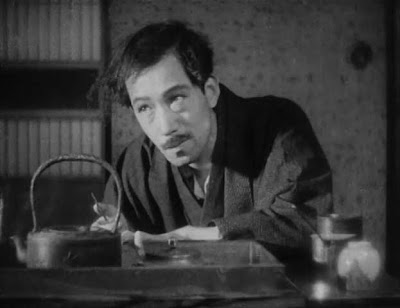I Was Born, But . . .
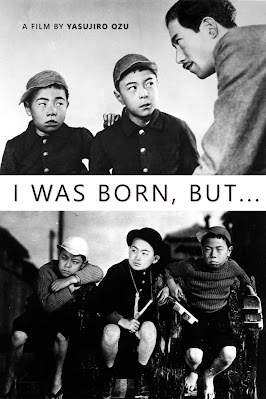
Director: Yasujiro Ozu
Year: 1932
Rating: 9.0
This sweet silent slice of life comedy
from Yasujiro Ozu startles you with how quietly profound it becomes as it
goes along. It has no particular dramatic event that propels it but Ozu manages
to capture so much of life's anxieties from childhood to adulthood. Watching
this brought on waves of memories from my childhood that had long been put
into storage. When I think of those days now it is usually with great fondness
- two wonderful parents, friends I played baseball or marbles with, traded
baseball cards with, seemingly all the time in the world, TV in the afternoons
after school and food always on the table.
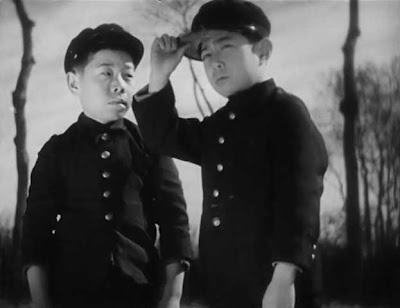
But as I watched this other thoughts crept
in - there were also times of enormous anxiety on my part that has partly
formed who I am. We moved around a lot as my father was in the Foreign Service
- from country to country every few years - and just like the two children
in this film you have to try and fit in, find new friends, say goodbye to
old ones never to see again, measure what your status is, live up to your
parent's expectations, face up to the bullies which I did on a few occasions,
put your marker down. And this continues through your life, through employment,
marriage, bringing up your children - always finding your place, trying to
be calm and responsible when everything inside you is turning to jelly. Near
the end the parents in the film look at their sleeping boys with pure unadulterated
love and the father says "Will they lead the same sorry lives we have?" and
it is an extraordinarily emotional moment like a gut punch out of nowhere
because you realize that though the focus of the film has been on the two
boys, the parents have their own hard backstory that we never get a glimpse
of.
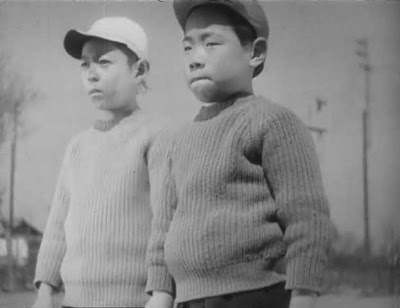
Yoshi (Tatsuo Saitô), his wife and
two young boys have moved to a new neighborhood to be closer to work. Described
as the suburbs but closer to being a small rural town. He is a mid-level
manager and they live in a small house with a front yard. The two boys Keiji
(Tomio Aoki) and Ryoichi (Hideo Sugarawa) are echoes of one another - about
a year apart in age they are able to communicate with each other with a simple
look or body language. What one does, the other soon follows. It is a delight
to watch their choreographed behavior - not in the least bit cute - just
regular boys - the younger one with a cheeky mug that spells trouble later
in life. They quickly run into the local mischief making boy's gang of about
six of them - all wearing their caps or in one case a bowler hat. They are
not bad kids at all - but they have to test the new kids. Their leader is
a larger boy who is used to pushing the others around a bit. They butt heads
quickly and the larger boy says wait till we get you in school.
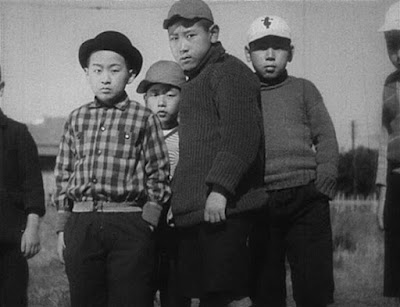
They intimidate Keiji and Ryoichi so much
that they stop going to school, play hooky and forge grades to show dad.
He finds out they have not been going to school and their confrontation is
wonderful as it slowly dawns on the boys that their ruse which they were
so proud of has fallen through and dad knows everything. That dread when
we were children when we did something wrong and are about to get caught.
Mine (one of many) was when I got suckered into playing poker with some older
children and lost everything I didn't have. I went home, up to my room and
closed the door. The little jerks actually came around to collect and I knew
I was in for a lecture on personal responsibility. Why was it that we got
away with so little? Mothers were like X-ray machines who saw everything,
could read you like a well-thumbed book.
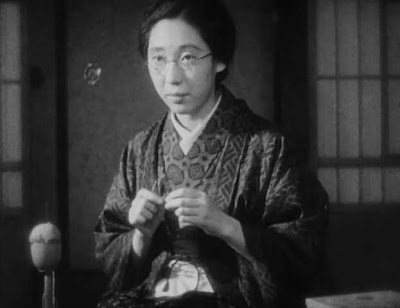
The tonal shift in the film occurs when
the boys and their father go over to his boss's home to look at home movies.
In the home movies their father is caught making funny faces and they notice
how subservient he is to his boss - whose son is one of the gang that the
two boys are now part of. This infuriates them. They thought their dad was
the most important man in town - they are humiliated - and accuse him of
being a loser. It is painful to watch because the father is such a good man
and lives a dignified life - their words cut him like a knife because there
is truth there but he is doing the best that the social order will allow
him. He says to his wife "I don't like cozying up to the boss but our lives
are far better off now than they were before". He takes care of his family.
That is the true measure of a man. In the end the rice balls save the day.
This is a great film. Quite amusing at times with the boys acting out but
underneath it all is the lurking horror in all our lives, the anxiety that
follows us forever, the quiet desperation we keep hidden within us.
